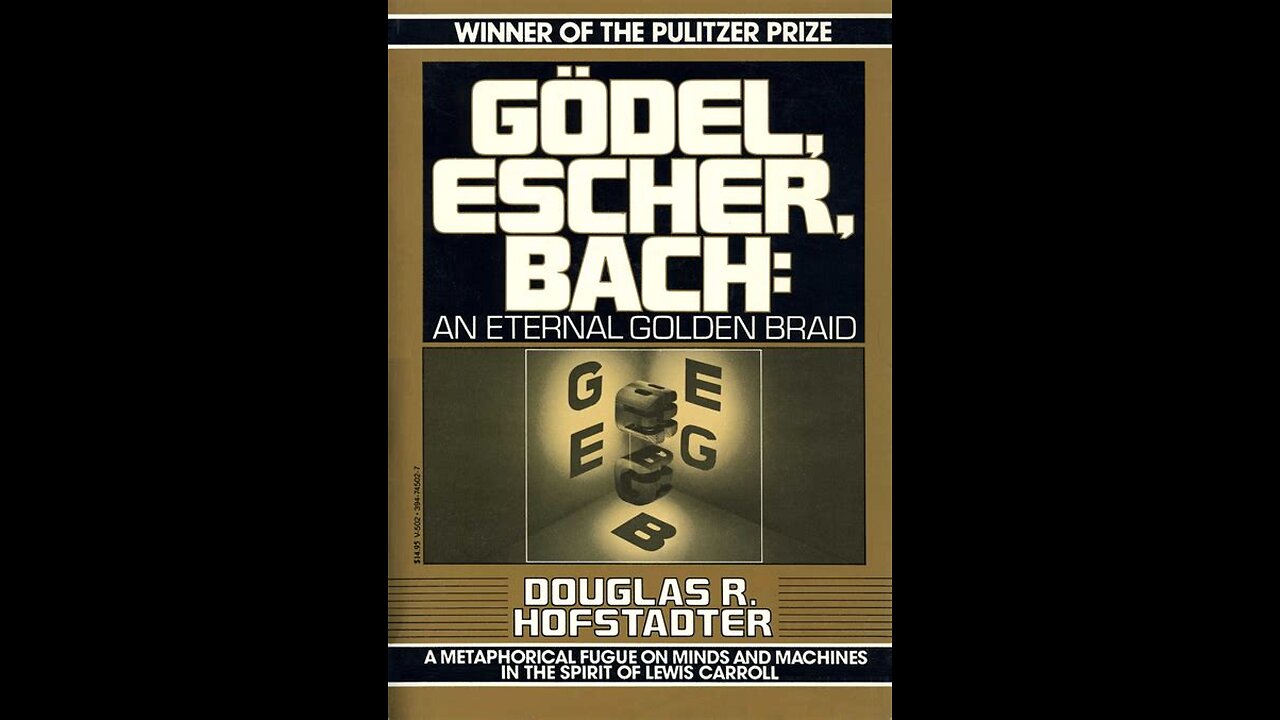Premium Only Content

Gödel, Escher, Bach - An Eternal Golden Braid by Douglas Hofstadter | Summary
Buy Here: https://amzn.to/3uGjdPt
""Gödel, Escher, Bach: An Eternal Golden Braid"" by Douglas Hofstadter is a multifaceted exploration of the interconnections between mathematics, art, and music. The book delves into the works of mathematician Kurt Gödel, artist M.C. Escher, and composer Johann Sebastian Bach to unravel the nature of human thought and creativity.
Hofstadter begins by examining Gödel's Incompleteness Theorems, exploring their implications for mathematical logic and the inherent limits of formal systems. The author then delves into Escher's art, unraveling the mind-bending visual illusions and paradoxes within Escher's creations, emphasizing themes of self-reference and recursion.
The discussion extends to Bach's musical patterns, investigating the intricate structures in his compositions and drawing parallels between Bach's work and mathematical concepts. The book explores the emergence of consciousness, introducing the concept of ""strange loops"" and highlighting the role of self-reference in shaping thought processes.
A central theme is the interconnectedness of art, music, and mathematics, arguing that these seemingly disparate domains share common threads. The narrative explores the relationship between formal systems, symbols, and meaning, emphasizing the role of complex patterns and recursive processes in generating intelligence and meaning.
Hofstadter discusses meta-levels of thought and the recursive nature of systems, exploring the concept of ""tangled hierarchies"" across different domains. The work proposes that analogy is fundamental to human cognition, examining how analogies contribute to understanding and creativity.
In essence, ""Gödel, Escher, Bach"" offers a rich tapestry of ideas, showcasing the profound connections between seemingly unrelated fields and delving into the fundamental aspects of human intelligence and creativity."
-
 LIVE
LIVE
SoniCentric
10 hours agoCozy Up With SNOWY Lakeside Cabin Jazz Vibes
88 watching -
 1:36:16
1:36:16
PMG
1 day ago $0.07 earnedSPECIAL: JUSTICE FOR JEREMY - NOW!
5.95K1 -
 1:01:01
1:01:01
TheTapeLibrary
12 hours ago $1.17 earnedThe Horrifying True Story of Summerwind Mansion
20.9K2 -
 29:28
29:28
Afshin Rattansi's Going Underground
1 day agoMax Blumenthal on US’ Ukraine Aid Corruption, 'Psychotic' Israel Turning the West Bank into Gaza
30.4K4 -
 DVR
DVR
Flyover Conservatives
21 hours agoCovid, Control, & Corruption —Dr. Stella Immanuel’s Plan to BEAT the System! | FOC Show
17.9K -
 57:13
57:13
Sarah Westall
5 hours agoUnited States in a Two Front War, Identify Military Psyops and Special Operations w/ Jeffrey Prather
58.7K7 -
 2:14:05
2:14:05
Quite Frankly
8 hours ago"Open Phones: Philly & D.C. Crashes" 1/31/25
37.3K11 -
 1:45:32
1:45:32
2 MIKES LIVE
8 hours ago2 MIKES LIVE #173 Open Mike Friday!
46.1K1 -
 54:53
54:53
LFA TV
11 hours agoDemocrats’ Greatest Fear Is Accountability | TRUMPET DAILY 1.31.25 7pm
34.9K16 -
 23:15
23:15
Bare Knuckle Fighting Championship
1 day agoBKFC FIGHT NIGHT MOHEGAN SUN FREE FIGHTS
32K2